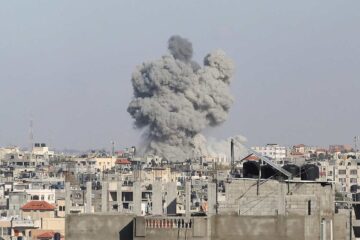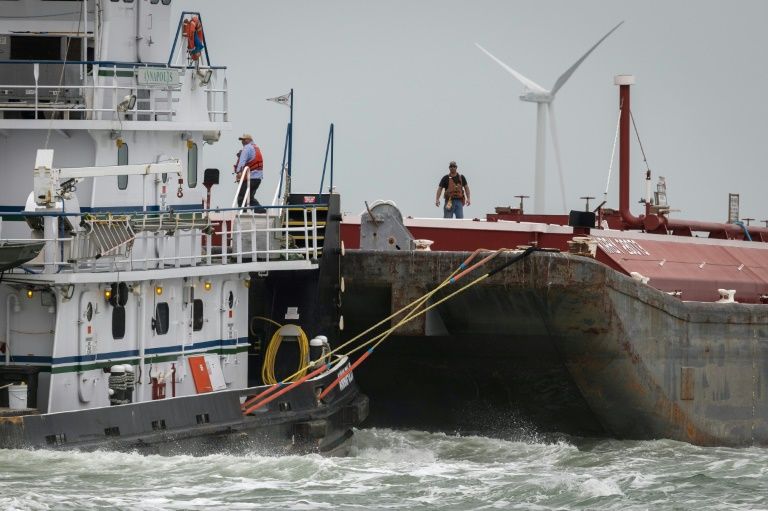John Kerry makes forceful case for US military intervention in Syria
US Secretary of State John Kerry has said that the United States will not wait for UN weapons inspectors to finish their work before deciding whether or not to launch military strikes against Syria.
In a half-hour speech delivered at the State Department on Friday, Kerry laid out a circumstantial case linking the government of Syrian President Bashar al-Assad to an attack in the Damascus suburbs last week.
Kerry said that 1,429 people were killed in the attack, though other reported death tolls have varied.
Shortly afterwards, President Barack Obama said the Syrian chemical attack threatened US national security interests.
He said the US was considering a "limited narrow act".
The report rejects the Syrian government\’s allegations that the attacks were the work of rebels. It says rockets and artillery shells carried the toxic gases to neighborhoods held by rebel forces. The U.S. government says the rebels do not have those types of heavy arms.
The U.S. also says its intelligence indicates that Syrian chemical weapons forces prepared the weapons before the attack. In the days beforehand, the U.S. "collected streams of intelligence" linked to preparations for an attack.
"We know that the Assad regime has the largest chemical weapons programme in the entire Middle East," Kerry said. "We know that the regime has used those weapons multiple times this year… and we know that the regime was specifically determined to rid the Damascus suburbs of the opposition."
But Kerry did not outline any specific plans for an attack, saying only that the administration of Barack Obama would "continue talking" with Congress and its allies.
Kerry, however, said the US would not wait for those results before deciding whether to act.
"President Obama, we in the US, we believe in the UN, we have great respect for it," Kerry said.
The British parliament voted against a resolution urging a military strike on Thursday night, and Prime Minister David Cameron said he would respect parliament\’s wishes.
However, US officials said they would continue to push for a coalition, and France said it was ready to take action in Syria alongside the US.
President Francois Hollande said the UK vote made no difference to France\’s position.
"Each country is sovereign to participate or not in an operation. That is as valid for Britain as it is for France," he said.
He said that if the UN Security Council was unable to act, a coalition would form including the Arab League and European countries.
"France will be part of it. France is ready," he said.
He ruled out strikes while the UN inspectors were in Syria. However he did not rule out the possibility that military action could be taken before next Wednesday, when the French parliament is due to debate the issue.
Neither France nor the US need parliamentary approval for action.
The use of chemical weapons is banned under several treaties, and is also considered illegal under customary international humanitarian law.
A team of UN weapons inspectors spent the week in Damascus and made several visits to the site of the attack in East Ghouta. The team departed on Friday, and will spend the coming days or weeks reviewing its findings.
In Thursday\’s statement, the White House also stressed that it would "continue to consult" with the UK over Syria, describing London as "one of our closest allies and friends".
United Nations Secretary-General Ban Ki-moon has urged world powers to hold off on possible military action until a U.N. chemical weapons inspection team completes its work in the country.
U.N. spokesman Farhan Haq on Thursday said the team investigating the August 21 attack near Damascus would leave the country by Saturday morning. While some will remain in Europe to analyze their samples, Haq said U.N. disarmament chief Angela Kane and other inspectors will be in New York in the coming days to brief Ban.
“They will have a large number of facts at their disposal, they’ve collected considerable amount of evidence – evidence through samples, evidence through witness interviews — they can construct from that a fact-based narrative that can get at the key facts of what happened,” he said.
Once laboratory results are in, the team will issue a final report. Haq said, “It is imperative that the work that the investigation team does be seen by all as fair, impartial and accurate.”
Earlier on Thursday, the five permanent UN Security Council members held a short meeting, but diplomats said their views remained "far apart". Talks with Britain, China, France and the United States lasted about 45 minutes, but diplomats did not brief reporters on what transpired.
China and Russia have blocked previous attempts at the U.N. to impose sanctions on President Assad’s regime. That has led to frustration for the U.S. and its European allies.
Iranian President Hassan Rouhani has said his government and Russia will work to prevent an attack on Syria, and warned any assault could “bring great costs” to the region.
Iran also has warned that any Western action against Syria would result in the “imminent destruction of Israel,” a U.S. ally in the region.
Also Thursday, Canadian Prime Minister Stephen Harper said his government supports Washington and its other allies contemplating a military response to Syria. He said, however, the Canadian military would not take a role in any attack.
In Paris, French President Francois Hollande has said his country is ready to punish those responsible for using chemical weapons. But he has not yet said whether the French will join the United States.
More than 100,000 people are estimated to have died since the conflict erupted in Syria in March 2011, and the conflict has produced at least 1.7 million refugees.
Source: Agencies
[do_widget_area inner_adsbar]










